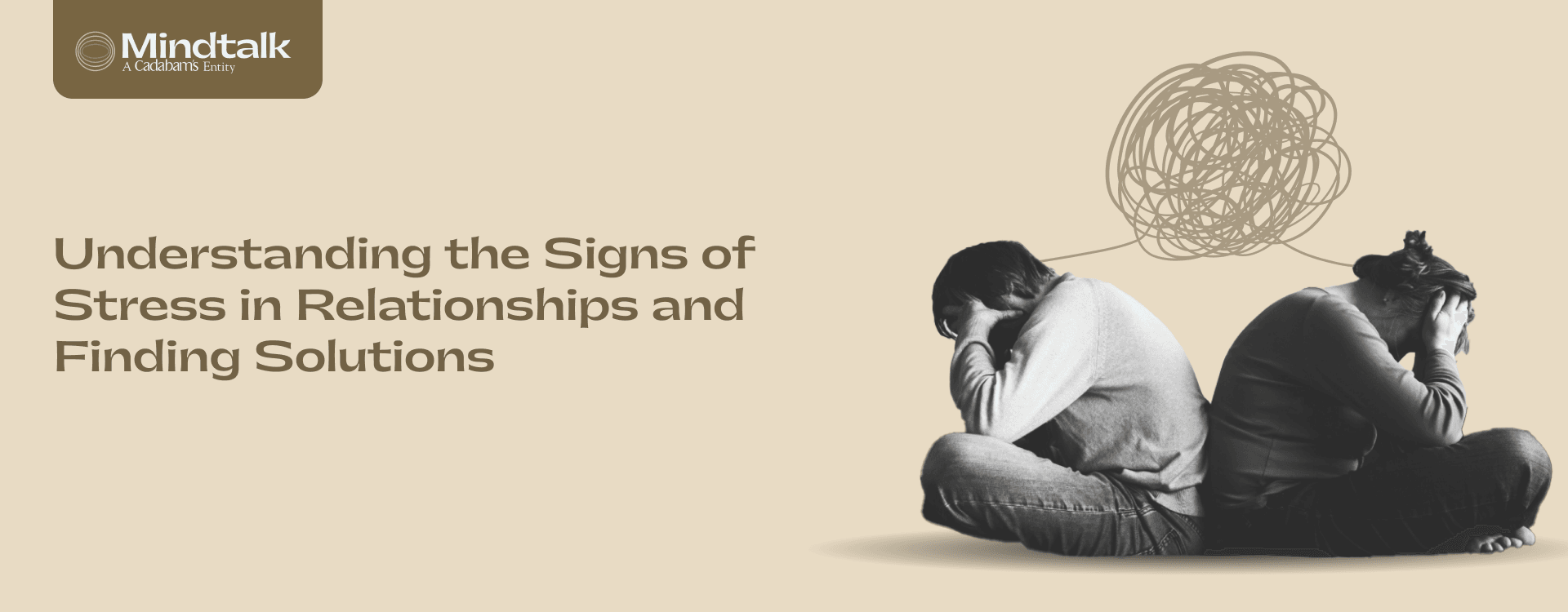Understanding and Managing Unrealistic Expectations in Relationships
It's time to forget about extravagant gestures and picture-perfect romantic tales this Valentine’s Day. These unreasonable expectations can obscure the beauty of a genuine connection. Let us identify how to identify and adjust our unrealistic desires, navigate open communication, and embrace the beautiful imperfections of authentic love.

The Psychology Behind Unrealistic Expectations
Unrealistic expectations can be a relationship paradox, fostering hope and disappointment. But where do these expectations even come from? Let's delve into the fascinating psychology behind them, exploring the factors that shape our desires and how they can sometimes lead us astray in love.
Influence Of Past Relationships And Upbringing
A complicated interaction of previous experiences shapes our expectations in relationships. Early contact with parents and caregivers creates the groundwork for closeness and communication. Whether successful or unsuccessful, past romantic relationships leave an impression on our perception of love and how we approach future relationships.
Impact Of Personal Insecurities And Self-Esteem
When emotions of inadequacy and poor self-esteem arise, our relationship expectations might be misdirected. We may require frequent reassurance, crave huge demonstrations of affection to feel worthy, or dread desertion owing to a deeply held perception that we are unlovable. These fears, like magnifying glasses, inflate our demands and aspirations, pushing them beyond our realistic expectations.
The Role Of Media And Cultural Narratives
Our exposure to media and cultural narratives serves as a lens through which we see love. The continual depiction of passionate interactions, lavish gestures, and conflict-free relationships creates an inaccurate image of real-life couples. These idealized storylines establish false expectations, encouraging us to demand the same amount of intensity, drama, and perfection in our relationships, resulting in a separation from the messy reality of love.
Social Comparison And Peer Influence
The continued comparison trap on social media and in our social groups can create unreasonable relationship expectations. Witnessing seemingly ideal depictions of other people's relationships might cause us to assume that our relationships fall short, fueling feelings of inadequacy and discontent. Constant comparisons fueled by envy and the urge to imitate can warp our sense of normal and set unrealistic expectations.
Projection And Displacement In Relationship Dynamics
Unconscious defense mechanisms such as projection and displacement can muddy the seas of expectations. We may project our fears onto our partner, expecting them to meet unmet needs, or we may transfer anger from another source onto them, resulting in skewed perspectives and unrealistic demands within the relationship. These psychological processes may create misunderstandings and conflict, so awareness of their potential effects is essential.
Identifying Common Unrealistic Expectations In Relationships
Before we get started on building a successful relationship, let's look at some typical unreasonable assumptions that might function as hurdles. Recognizing and letting go of unjustified expectations allows us to create better, more meaningful, and true relationships.
Expecting Perfection From Your Partner
Yearning for an idealized, immaculate companion creates an unattainable goal and fosters disillusionment. Accepting faults and embracing each other's distinct idiosyncrasies and talents are essential to real partnerships. Recognizing that everyone makes errors and has weaknesses enables true connection while also encouraging mutual respect and acceptance.
Believing Relationships Should Be Conflict-Free
Disagreements are normal and healthy in partnerships. Viewing disagreement as a source of problems undermines the chance for growth, understanding, and deeper connection. Effective communication and the capacity to negotiate arguments constructively may deepen the bond and increase resilience in a partnership.
Assuming Your Partner Can Read Your Mind
Assuming your spouse comprehends your unspoken thoughts and wishes creates the potential for misunderstandings and anger. Open and honest communication is vital for developing trust and closeness. Expressing your wants and feelings honestly while actively listening to your spouse promotes greater understanding and connection.
Expecting Your Partner To Fulfill All Your Needs
Expecting your spouse to meet all of your needs leads to unhealthy codependency. Maintaining individual lifestyles, hobbies, and personal growth enhances the bond and promotes healthy dependency. Sharing your hobbies and supporting one other's endeavors enhances the relationship without causing excessive strain on either partner.
Holding Onto Fairy Tale Romance Ideals
Comparing relationships that exist to idealized images in the media leads to excessive expectations and disillusionment. Accept the unique beauties and challenges of your true connection. Remember that social media and movies frequently depict an exaggerated and dramatic depiction of love. Celebrate the genuine, ordinary moments in your relationship and treasure the characteristics that make it remarkable.
Thinking Love Should Always Feel Easy
The idea that love should always be effortless ignores the realities of cultivating and maintaining a healthy relationship. Long-term love requires commitment, communication, and work. Taking the time and effort to understand one another, settle problems, and express affection deepens the relationship and promotes long-term contentment.
Believing That Your Partner Will Never Change
People and relationships inevitably change over time. Expecting your spouse to be static denies the possibilities of personal development and shared experiences that affect your relationship. Embracing change and growth together helps the relationship to evolve and deepen with time. Remember that both people will adapt and change throughout their lives, and these experiences can help to strengthen the connection.
The Impact Of Unrealistic Expectations On Relationship Health
Unrealistic expectations are like buried explosives in relationships. When we expect our spouse to be perfect, a mind reader, or the entire source of happiness, disappointment is certain. The continual pressure to live up to an unachievable standard stresses the relationship and impedes healthy communication and development. Ultimately, false expectations might undermine the very connection they want to foster.
Techniques For Overcoming Unrealistic Expectations
We may use practical strategies to create healthier, more realistic attitudes that promote genuine connection and mutual respect. These approaches enable us to celebrate our partner's uniqueness, manage differences constructively, and establish a relationship based on understanding and acceptance.
Set Achievable Goals For Personal And Relationship Growth
Break out from the "happily ever after" ideal and set realistic goals for individual and societal improvement. This creates a collaborative environment where both parties strive for mutual progress, instilling a shared purpose and success.
Develop A Strong Sense Of Self-Awareness
Understanding your wants, values, and weaknesses is critical. Self-awareness enables you to communicate effectively, uncover problematic behaviors, and value your partner's distinctive characteristics, laying the groundwork for self-love and healthy dependency.
Reframe Negative Thought Patterns
Challenge your own or your partner's automatic negative ideas. Identify cognitive distortions and replace them with accurate and positive self-talk to improve emotional well-being and develop a more hopeful view of your relationship's future.
Practice Gratitude and Appreciation In Daily Life
Regularly recognizing the positive elements of your spouse and relationship fosters a sense of happiness and appreciation. Expressing appreciation improves the tie, increases emotional closeness, and promotes positive reinforcement within the partnership.
Encourage Open And Honest Communication
Effective communication is essential for negotiating disagreements and managing expectations. Express your wants and feelings openly, actively listen to your spouse, and engage in constructive communication to foster trust and mutual understanding.
Consult a Therapist For Personalized Guidance And Support
Seeking professional support from a therapist might provide you with extra skills and tactics for dealing with unreasonable expectations. Therapy can give a secure environment to address underlying difficulties, build healthier coping mechanisms, and improve your communication skills, resulting in increased relationship satisfaction.
How To Set Healthy Expectations In A Relationship
Setting healthy expectations is essential for establishing a solid basis for love. Let's look at how to set realistic yet gratifying criteria in your relationship that foster respect, understanding, and mutual progress.
What Are Healthy Relationship Expectations?
Healthy expectations are reasonable, mutually courteous, and promote individual and group progress. They emphasize open communication, understanding, and shared responsibility within the partnership to build a sense of security and lay the groundwork for true connection.
Communicate And Align Expectations With Your Partner Effectively
Open and honest communication is essential for setting healthy expectations. Discuss your own wants, desires, and boundaries with your spouse. Actively listen to their point of view, make concessions, and attempt to align your expectations in a fair and beneficial way to all parties.
Balance Between Idealism And Practicality In Relationships
While optimism can be beneficial, creating expectations based exclusively on false standards can result in disappointment and conflict. Aim for a balanced attitude that recognizes every relationship's great features and possible pitfalls. Focus on establishing mutual regard, understanding, and shared beliefs.
Recognize And Respect Personal Boundaries
Respecting personal limits is essential for healthy partnerships. This involves respecting each other's privacy, time, and autonomy. Open communication and clear limits promote trust and enable each partner to maintain a healthy sense of self.
Managing Expectations: A Key To Relationship Success
Setting and managing expectations correctly serves as the foundation of a successful partnership. Unrealistic expectations lead to disappointment, anger, and strain. Healthy expectations, on the other hand, promote mutual understanding, respect, and support. Couples may negotiate problems constructively and develop a successful relationship by freely articulating their needs, setting clear limits, and accepting individual growth.
Embracing Healthy Relationship Dynamics With MindTalk
MindTalk helps you manage the intricacies of relationships with more clarity and purpose. Our professional therapists offer tailored counseling and assistance to help you:
- Identify and resolve unhealthy expectations: Investigate the underlying reasons for inaccurate expectations and devise techniques to reframe negative thought patterns.
- Establish good communication: Learn to assertively express your wants, actively listen to your spouse, and promote open and honest discourse.
- Set healthy boundaries: Recognize the significance of personal limits in relationships and find healthy ways to communicate and respect them.
- Navigate conflict constructively: Learn how to effectively manage differences while creating empathy and understanding within the partnership.
Investing in your relationship health with MindTalk allows you to foster a deeper connection, overcome obstacles, and create a future filled with love, respect, and mutual understanding.
Similar Posts












